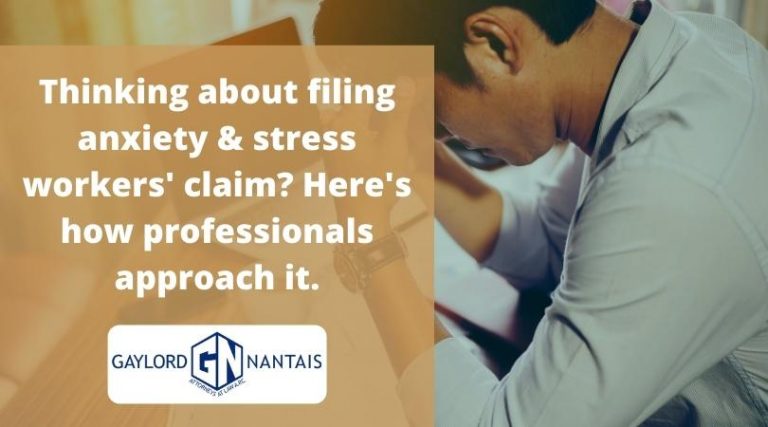Mental health issues can cause an individual to experience heavy stress, anxiety and sometimes even physical fatigue.. While many people may only need a day off when they have a mental illness, these conditions can also lead to additional physical problems requiring care and time away from work. Symptoms of anxiety disorders can sometimes be mistaken for everyday stress or easily erased by excessive attention. Anxiety can have a myriad of causes or reasons, from mental disorders (such as depression) to adverse drug reactions and stressful but temporary life events (like divorce or unemployment).
However, certain events, emotions, or experiences can trigger or exacerbate anxiety symptoms. Data from the National Alliance on Mental Health has shown that about 30 per cent of Americans experience clinical anxiety at some point in their lives. And while it may be difficult for some to talk about it, it is estimated that 54 million Americans experience symptoms (and side effects) associated with mental health problems each year.
California does not have a Stress Leave Law. However, California Labor Law allows workers to file a workers’ compensation claim if the “psychiatric injury” was caused by workplace stressors. But California Workers’ Compensation Law also recognizes the emotional, mental, and mental conditions that can develop as a result of a work-related physical injury or traumatic event that occurs at work. Under California labour law, work-related stress may constitute a compensable work-related psychiatric injury if it can be shown that the work events were the underlying cause of the documented disabling condition. Under California law, if an employee is formally diagnosed with a mental or psychiatric disorder requiring treatment and the condition worsens as a result of job duties or employment conditions, employers must provide workers’ compensation benefits when the employee seeks additional treatment.
However, there are limitations to who is eligible to apply for a stress claim.
Who is eligible for stress claims at work?
The state does not have clear laws regarding stress relief, but under state law, workers can file a mental harm claim in the workplace. California law requires employers to offer their employees access to these programs for free. However, employers and insurance companies routinely deny workers compensation for psychological conditions such as depression and anxiety. Workers suffering from mental or emotional trauma often face uphill battles with skeptical insurance companies that are quick to dismiss such claims.
A worker complaining of psychological harm must have a detailed medical statement supporting the worker’s claim for compensation. The worker must be able to demonstrate that his or her mental health condition has deteriorated as a direct result of work or that the condition has been caused by the profession. Where perceived stress at work has been found to be simply the product of a psychiatric problem underlying workers’ projection of their work environment, no compensable damage has been found (Hanna v. WCAB, 1980, 45CCC1174).
Therefore, if an employee has only worked for five months and is absent due to a “sudden and extraordinary working condition” (Labour Code 3208.3(e)(1) or other exception, the employee may not be able to maintain a valid stress request must exist in order to to “more than likely” link the claimant’s normal job duties to his or her mental illness; the law states that a workplace must be at least 51% responsible for a mental injury in order to be forced to provide workers’ compensation benefits; for most claims for damages only require a minimum threshold of 35%.
How to file a Stress Claim at work?
Most workers know that California law protects workers with mental health problems. California workers suffering from work-related stress may receive compensation payments under certain circumstances. Although, as mentioned above California does not have its stress-related leave law, California labour law may, in certain cases allow employees to file a compensation claim for mental injury caused by workplace stress. You may also be eligible for unpaid stress leave under the Family Sick Leave Law and the California Family Rights Law.
If your doctor believes your work-related stress is a “serious health condition”, you may also be eligible for 12 weeks of unpaid protected work leave under the Family Sick Leave Act (FMLA) and the State Family Rights Act California (CFRA). An FMLA or CFRA leave can be a great option if work-related stress and anxiety are interfering with your ability to work and you need to take your time. If your doctor determines that your stress is a serious threat to your health, but you are unable to receive workers’ compensation, you may still receive unpaid leave and employment protection under the FMLA. In that situation contact your Human Resources department and let them know that you would like to take FMLA-approved stress leave.
Since there is a tiny margin for error in these types of claims it is advisable to take the assistance of a professional Stress Claims attorney. At Gaylord & Nantais attorneys, we have more than 40 years of expertise in successfully representing people who have been hurt on the job. We have experience with claims in a variety of sectors and will do our utmost best to protect your rights.
To get a free evaluation , call Gaylord & Nantais Attorneys at (562) 424-9967 or (562) 424-9967.











